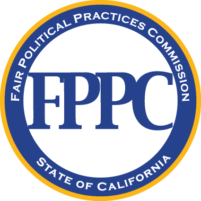FPPC seeking authority to fine officials for illegal expenditures of public funds
February 25, 2019
 By JOSH FRIEDMAN
By JOSH FRIEDMAN
Alleging that public officials are illegally using taxpayer funds for political campaign activity and doing so with impunity, the California Fair Political Practices Commission (FPPC) is lobbying lawmakers to amend a state law so that it can fine officials who commit such violations. [Cal Coast Times]
Under state law, it is illegal for public agencies to spend taxpayer dollars on political campaign activity. Currently, state law allows the FPPC to fine public agencies but not officials and employees for spending public funds on campaign activity.
The law authorizes the attorney general, district attorneys and city attorneys in cities with populations of 750,000 people or more to bring civil action against violators of the prohibition on spending public funds on campaign activity. However, the FPPC alleges state and local authorities are not adequately enforcing the law.
At its Feb. 21 meeting, the FPPC voted unanimously to send a letter to the leadership of the California Legislature requesting lawmakers consider amending the Fair Political Practices Act in order to authorize the commission to investigate and prosecute the unlawful use of public funds for campaign activities. The FPPC is seeking the authority to bring civil action against not just public agencies, but also public officials.
The proposal is seen as a deterrent against misuse of public funds and potential relief for taxpayers.
“At present, if fined, the government body pays the fine from public funds,” said attorney Chuck Bell, who is involved in an active case before the FPPC involving a San Luis Obispo County transportation agency.
“The public gets charged twice: once for the illegal campaign activity and the second time to pay a fine to the government.”
The FPPC recently fined the Bay Area Rapid Transit District (BART) for failing to disclose its campaign activity in support of a ballot measure. The commission says it will aggressively pursue other cases involving public agencies committing similar violations.
Since 2015, the FPPC has opened 34 cases involving allegations of a public agency spending public funds for campaign purposes. The FPPC has closed 18 of the cases, a commission staff report states.
Of the 18 cases closed, three have resulted in stipulated settlements, two have resulted in warning letters and the remaining 13 ended with an advisory or closure letter. The FPPC is not aware of any actions brought by state or local prosecutors in any of those cases, the staff report says.
One FPPC investigation into alleged illegal use of public funds for campaign activity involves the San Luis Obispo Coalition of Governments (SLOCOG).
During the campaign for Measure J-16, a county sales tax initiative that was on the Nov. 2016 ballot, SLOCOG spent approximately $540,000 promoting the initiative.
On behalf of the Central Coast Taxpayers Association and the Howard Jarvis Taxpayers Association, Bell filed an FPPC complaint against SLOCOG . After reviewing the complaint, the FPPC launched an investigation.
“It is under an active investigation, and the FPPC has taken serious interest in the issue,” Bell said.
Bell recently appeared before the SLOCOG board during public comment and told board members that the taxpayers’ association would be watching them. Now, Bell says the FPPC is becoming increasingly serious about prosecuting matters like the one involving SLOCOG.
“In the many years working on FPPC matters, I haven’t seen commissioners as concerned about an issue as they are about gaining more tools to prosecute campaign abuse by governments entities as exemplified by the SLOCOG matter,” Bell said in a statement released by the Central Coast Taxpayers Association.
The FPPC is currently seeking a sponsor for its proposed bill to amend state law






The comments below represent the opinion of the writer and do not represent the views or policies of CalCoastNews.com. Please address the Policies, events and arguments, not the person. Constructive debate is good; mockery, taunting, and name calling is not. Comment Guidelines